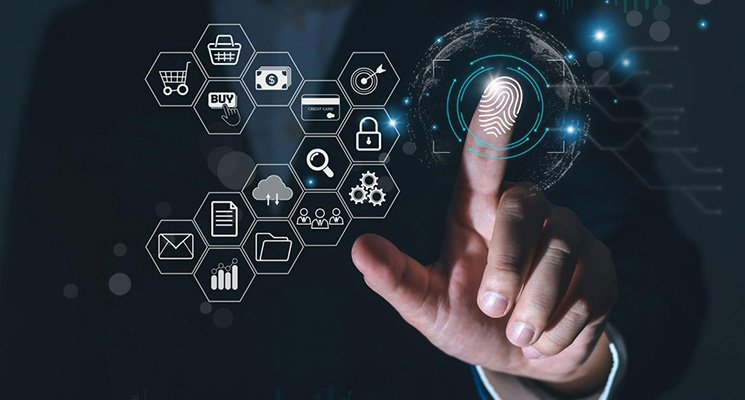People readily embrace technology as it offers them easily accessible solutions that hold value. One area that is currently being developed is identity verification. Moreover, digital identity plays a role across industries globally by ensuring the security and safeguarding of data when verifying someone’s identity.
This article explores the subject of electronic check verification and its usage across industries globally.
What is Electronic Identity Verification?
Electronic Identity Verification (e-IDV) refers to the process of verifying an individual’s identity through mobile or computer devices. This is a component of AML and KYC regulations designed to prevent activities.
Moreover, e-IDV technology follows the principles of identity verification methods by collecting and analyzing government-issued ID information. However, it also allows companies to gather information and assess risk factors that are challenging to obtain through manual identity verification processes.
Primary Use Cases of Electronic Verification Systems in 2024
As the risk of data breaches, identity theft, and account takeover increases, modern businesses now demand more secure and advanced ways to protect themselves. Electronic identification checks are of significant importance in today’s digital world. However, the following are some primary use cases of electronic identification systems:
Financial Industry
Identity verification is more appropriate than ever when it comes to ensuring the safety and protection of the financial services industry. It is a perfect solution that helps businesses avoid identity theft and prevents fines for non-compliance with KYC and AML guidelines.
In fact, electronic identity verification allows financial firms to combat crimes like money laundering while helping them stay compliant. Furthermore, it helps organizations to ensure that all their financial transactions are protected.
The e-IDV procedure helps the financial industry in various aspects. However, here are some major industries utilizing these electronic solutions to be protected:
- Wealth Management Firms
- Traditional & Challenger Banks
- Credit Card Businesses
- Insurance Companies
- Foreign Exchanges
- Cryptocurrency & ICOs
- Payment Providers
- Remittances
- Investment Platforms
Digitization helps all these institutions to improve their overall customer experience and growth. Unfortunately, cyber-attackers leverage advanced technology to discover ambiguities in monetary services and execute monetary scams. Nevertheless, identity verification has a vital role in data security. It is valuable for avoiding challenges like identity theft, financial terrorism, and other cybercrimes. Moreover, real-time digital identity verification mechanisms confirm identity records and interpret customers’ previous documents from existing databases.
Healthcare Sector
The healthcare sector is another primary use case of electronic identity verification systems. With high-end technological developments, the healthcare sector rapidly expands globally while combating potential threats.
Two of the primary risks associated with the healthcare industry are information leaks and identity theft. These threats might put patients’ medical records into the wrong hands and fail to identify patients correctly. Moreover, this can also cause errors associated with diagnosis and medication, which can seriously threaten life. Healthcare organizations deliver services more successfully and efficiently with digital ID verification solutions, decreasing overheads and safeguarding patient information via innovative electronic identity verification procedures.
Furthermore, progress in telehealth and online healthcare record methods, is now establishing new opportunities to improve record-keeping processes and ensure strict access controls.
Some primary benefits associated with digital identity verification solutions are as follows:
- Protect patient’s information
- Verify patient’s identity as per HIPAA requirements
- Operates the distribution of medicine prescription
- Prevents medical identity theft
- Effortlessly registers and onboards patients online
- Reduces the risk of wrong transfer and seamlessly updates medical record
- Prevents the loss due to false claims or inaccurate billing
Education Sector
After COVID-19, schools and universities have moved to online solutions for identification and educational aspects. A strong online electronic identity verification solution helps educational institutions to learn more and identify online learners. It helps the schools, colleges, and universities to conveniently:
- Improve quality and ensure productivity
- Serve students at the global level
- Ensure credibility of learners, faculty, as well as institutions
Furthermore, eIDV helps organizations simplify their student enrollment processes while saving the time and expense of verifying every new student individually. This way, trainees can conveniently complete their online identity verification procedure in a matter of seconds. In fact, identity verification mechanisms offer face liveness detection, ensuring that the trainee creating an online account, attending a course, or taking an online test is physically attending.
The Bottom Line
Due to the increasing demand for security and more simplified procedures in many industries, electronic identification verification (eIDV) has emerged as a must-have technology in 2024. It is crucial to the banking industry since it ensures standards are followed and assists in preventing fraud. When utilized in healthcare, eIDV speeds up the process and increases data security. Online enrollment and credential checking are helping the education sector as well. eIDV enhances security in today’s increasingly digital environment while also making life simpler for organizations and businesses, which is crucial for their success. In a variety of circumstances, electronic identity verification is a crucial component of data authentication and protection.


